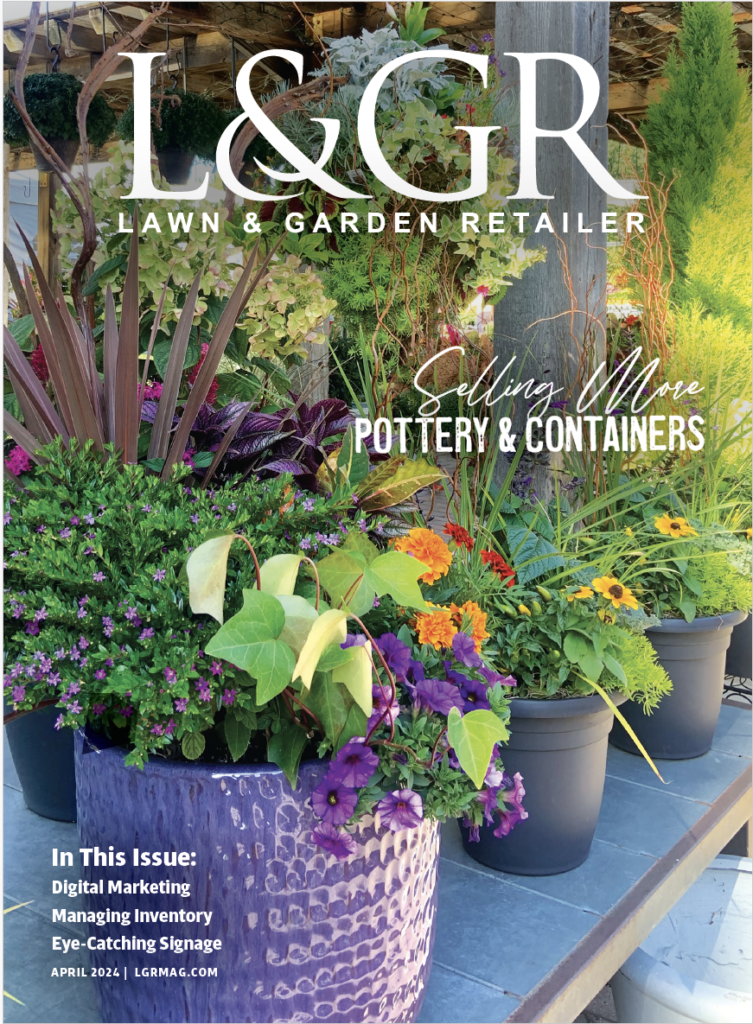Reviewing 2002: Spring and Summer at Retail
Weather around the nation was rather manic this past spring and early summer, with La Niña and El Niño causing Mother Nature to have mood swings that ranged from tempestuous rainstorms to water restriction-invoking droughts.
Whether too dry, wet, cold or hot, weather can affect consumer buying in our industry — to one’s benefit or detriment — almost single-handedly. The good news is that while many retailers across the country felt the effects and suffered the consequences of poor weather during the height of the selling season, equally good weather later on allowed many to recoup their losses. Other factors, such as the long-lasting effects of September 11, also had a recognizable impact, slowing down sales for some and increasing them for others. In general, branded plant material does not seem to have had as great an effect on sales or consumer buying decisions as plant marketers would like, though high-quality plants — branded or not — were big sellers.
Like every year, it’s been a learning experience and a basis for improvement. Uncontrollable drought conditions have made some retailers rethink their plant selections for next year; those with down or flat sales in favorable weather conditions have been scrutinizing other areas of their businesses, like possibly needing to improve parking or the general appearance of their stores.
Lawn & Garden Retailer surveyed retailers around the country and Canada to get some perspective on 2002. They share their experiences with you in the following pages.
1. How did the 2002 spring and early summer selling seasons compare with 2001?
“2002 was a strong season for us. It started slower due to cooler weather and our area was under drought restrictions, but with consistent rainfall, business was good.”
Mark Schuch, Stauffers of Kissell Hill, Harrisburg, Pa.
“2002 was not nearly as good as 2001 due to the drought.”
Betsy Hofmeister, Pine Lane Nursery, Parker, Colo. Á
“Early 2002 was off the charts with exceptional weather to thank.”
Matt Donlan, Bayside Garden Center, Belvedere, Calif.
“Our sales were down but with triple the normal rain and colder temps, we feel we did as well as possible.”
Rick Frederick, The Landscape Supply, Burlington, Ky.
“Sales were off by 35 percent, and we didn’t recover that.”
Gary Wesolowski, Sunny Acres Greenhouses, Dowagiac, Mich.
“2002 was much stronger and consistent than 2001, with sales from April-June up 18 percent.”
Brad Siebe, Swanson’s Nursery, Seattle, Wash.
2. What percentage of your sales were from hard goods vs. live goods? What were the most popular/best-selling hard and live goods?
“Hard goods were 55 percent of sales, and live goods were 45 percent. Our most popular hard goods were barbeques, water goods, potting soils, chemicals, accents and gifts for gardeners, while the live goods that sold best were perennials, bedding plants, 4-inch and larger annuals and tropical flowering plants.”
Henry Marconi, Watson’s Garden Centers, Lutherville, Md.
“Hard goods were 30 percent, live goods were 70 percent. The best-selling live goods were annuals, hanging baskets, perennials and roses, while high-end pots and patio furniture were the most popular hard goods.”
Bill O’Ravez, Edgewood Flower Farm, Edgewood, Wash.
“Hard goods represented 5 percent of sales, and live goods were 95 percent of sales. Hard goods that were popular for us were fungicides for lawn and roses, Chinese granite benches and lawn ornaments. Live goods that sold well were broadleaf evergreen shrubs, evergreen trees, and 4-inch and larger specialty annual pots.”
David Sherwood, Sherwood’s Forest Nursery & Garden Center, St. Louis, Mo.
3. Did you sell any branded plant material? If so, which brands and what types of plants? Were customers asking for any particular brands?
“We sold JP Roses, and they are still selling. Customers weren’t really asking for any particular brands, but I think plant branding is effective when it is nationally promoted and followed.”
James Lappan, Lappan’s of Gaylord Inc., Gaylord, Mich.
“We primarily sell Monrovia-branded shrubs and perennials in green Monrovia pots. Our customers now ask for the “green pot brand” and pay the extra cost for the superior quality. Also, we have a local grower growing Ritter perennials with branded pots.”
David Sherwood, Sherwood’s Forest Nursery & Garden Center, St. Louis, Mo.
“We sold Monrovia and Proven Winners, and sales were okay. But customers were not asking for brands, so I don’t feel branding is effective. Customers purchase what looks the best.”
Brad Siebe, Swanson’s Nursery, Seattle, Wash.
“We sold some [branded product], but few people ask for brand names, so I don’t think it’s very effective.”
Betsy Hofmeister, Pine Lane Nursery, Parker, Colo.
“We sold Monrovia, Proven Winners, Etera, Blooms of Bressingham and Flower Carpet. But customers only ask for them sometimes. Plant branding could be effective if the quality is as promised. We can’t advertise a quality product and let it be abused in a box store. It ruins the brand name.”
Steve Echter, Echter’s, Arvada, Colo.
“Proven Winners and Simply Beautiful were sold, but customers did not ask for brands specifically, except for Wave petunias.”
Mark Schuch, Stauffers of Kissell Hill, Harrisburg, Pa.
“Proven Winners and Centerton items sold very well. Customers now know about Proven Winners and ask for them. Plant branding is definitely effective.”
Henry Marconi, Watson’s Garden Centers Inc., Lutherville, Md.
4. How did the weather affect sales, if at all?
“The cool spring made for slow annual sales early.”
Dave Slack, Meadows Farms Nurseries Inc., Md. and Va.
“The bad weather in May hurt sales significantly.”
Matt Dolan, Bayside Garden Center,Belvedere, Calif.
“Until just recently, we didn’t have three days in a row without some rain. It’s hard to landscape in the rain. About 65 percent of my business is to landscapers, many of which have grass-cutting services. Most of them are just now getting caught up with their cutting and can now think about their landscape projects.”
Rick Frederick, The Landscape Supply, Burlington, Ky.
“If anyone told me weather didn’t affect our sales in the last two years, I would have to send them to the priest in our parish so they could confess the lie they just told. The weather stunk, and that is an understatement.”
Gary Wesolowski, Sunny Acres Greenhouses, Dowagiac, Mich.
5. What kinds of promotional/marketing strategies did you use during the spring season? What was most successful and why?
“Denny McKeown has a local/regional phone-in gardening program for three hours each Saturday. I have advertised on his radio program for several years. I feel I’m reaching a select audience with this venue. New for me this year was a 3-month contract with Reach magazine, a coupon publication aimed at local zip codes. I felt this was successful. I also publish a weekly sale I pass out to walk-in customers. We choose about 15 of the best-looking plants each week and take an extra discount off these selected items. Anyone can put their stressed material on sale — I can set myself apart by putting out my best.”
Rick Frederick, The Landscape Supply, Burlington, Ky.
“This is my third spring, and name recognition, showing at trade shows, changes in advertising and being involved on the board of state flower growers has increased traffic and sales 80 percent.”
Ann Rogers, Otter Creek Gardens, Washington, Ga.
“Our total promotional and marketing was selling top-quality, large-sized, fully guaranteed plants. We have a 1-year warranty on hardy plants if the customer plants it. We have a 2-year warranty if Sherwood plants it. We do very little advertising of sale prices; we concentrate on quality and image.”
David Sherwood, Sherwood’s Forest Nursery & Garden Center, St. Louis, Mo.
“We advertised with TV commercials in addition to our direct mailings, but the direct mailings are most effective.”
Jeff Griff, Lowe’s Greenhouse & Gift Shop, Chagrin Falls, Ohio.
6. Based on what you learned/experienced in spring 2002, what kinds of changes (whether in buying product or marketing) will you make for the 2003 spring/summer season?
“We will cut quantities of some hard-to-handle items and carry even more variety.”
Thomas Dayton, Dayton Nurseries, Norton, Ohio.
“We won’t do anything new. We’ll just keep trying to serve our customers better.”
Mike Reilly, Reilly’s Summer Seat Farm, Pittsburgh, Pa.
“We are going to pave our parking lot and have a larger display area.”
Edward Knapton, America’s Best Flowers, Madison, Wis.
“We will carry less trees. We also plan to increase perennial space, because perennials are up 25 percent year-to-date”
Dave Slack, Meadows Farms Nurseries Inc., Md. and Va.
“We will have more under-cover sales, more instant, larger color and more already-done planters and combos.”
James VanEenwyk, Grandpa’s Nursery, Sodus, N.Y.
“The drought and international crisis has made me cautious about buying, and I have put a hold on expansion for now. People are not traveling as much, but are taking day trips (which helps my tourist shopping). The economy and drought has definitely affected local buyers in that less bedding plants and more containers [are selling], and they are growing more fruits and vegetables and starting water gardens. Birding is a booming sale. [For next year,] I’ll offer more drought-tolerant plants, container pots with perennials, water plants and fruit trees.”
Ann Rogers, Otter Creek Gardens, Washington, Ga.
7. Do you think sales will be better or worse than last year for the upcoming fall/Christmas seasons?
“We are optimistic for a strong fall and Christmas season. In the spring with all the talk of recession, we didn’t experience a decline in business but are up almost eight percent as of June 23.”
Mark Schuch, Stauffers of Kissell Hill, Harrisburg, Pa.
“I predict that sales will be better, except that there is a new Wal-Mart opening close to us this fall.”
Mark Fanick, Fanick’s Garden Center, San Antonio, Texas
“It will depend on many factors, but we’re looking for slightly better [sales]. The focus will be on family.”
Brian Minter, Country Garden, Chilliwack, BC, Canada
“For the fall season, I predict sales will be up if we get rain in late summer and fall. The Christmas season, I think, will be stable to slightly down.”
Thomas Dayton, Dayton Nurseries, Norton, Ohio
“I think it will be average to worse.”
Don Rosebrook, Classic Nursery and Landscape Co., Redmond, Wash.




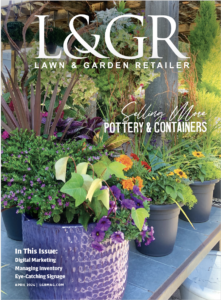
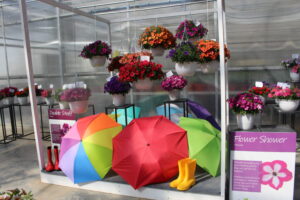
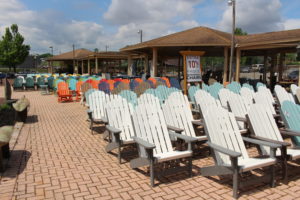
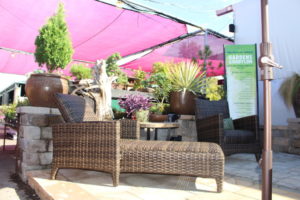
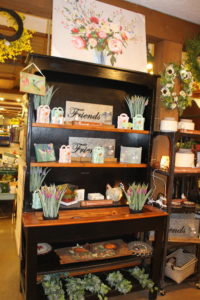
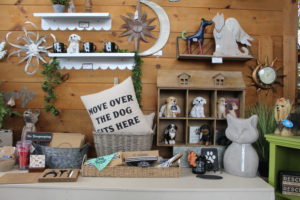
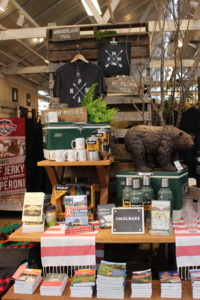
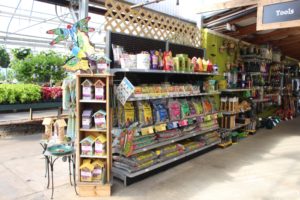
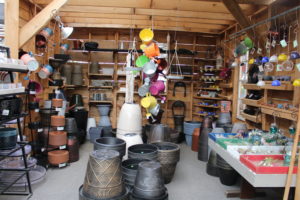
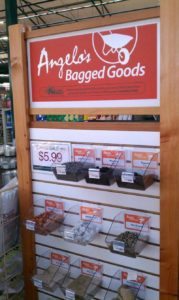
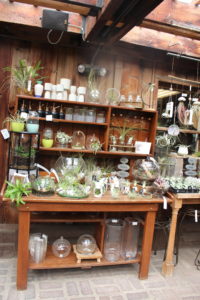
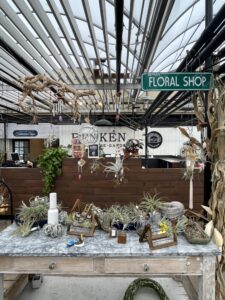
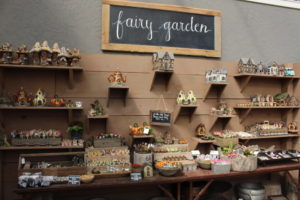
 Videos
Videos




